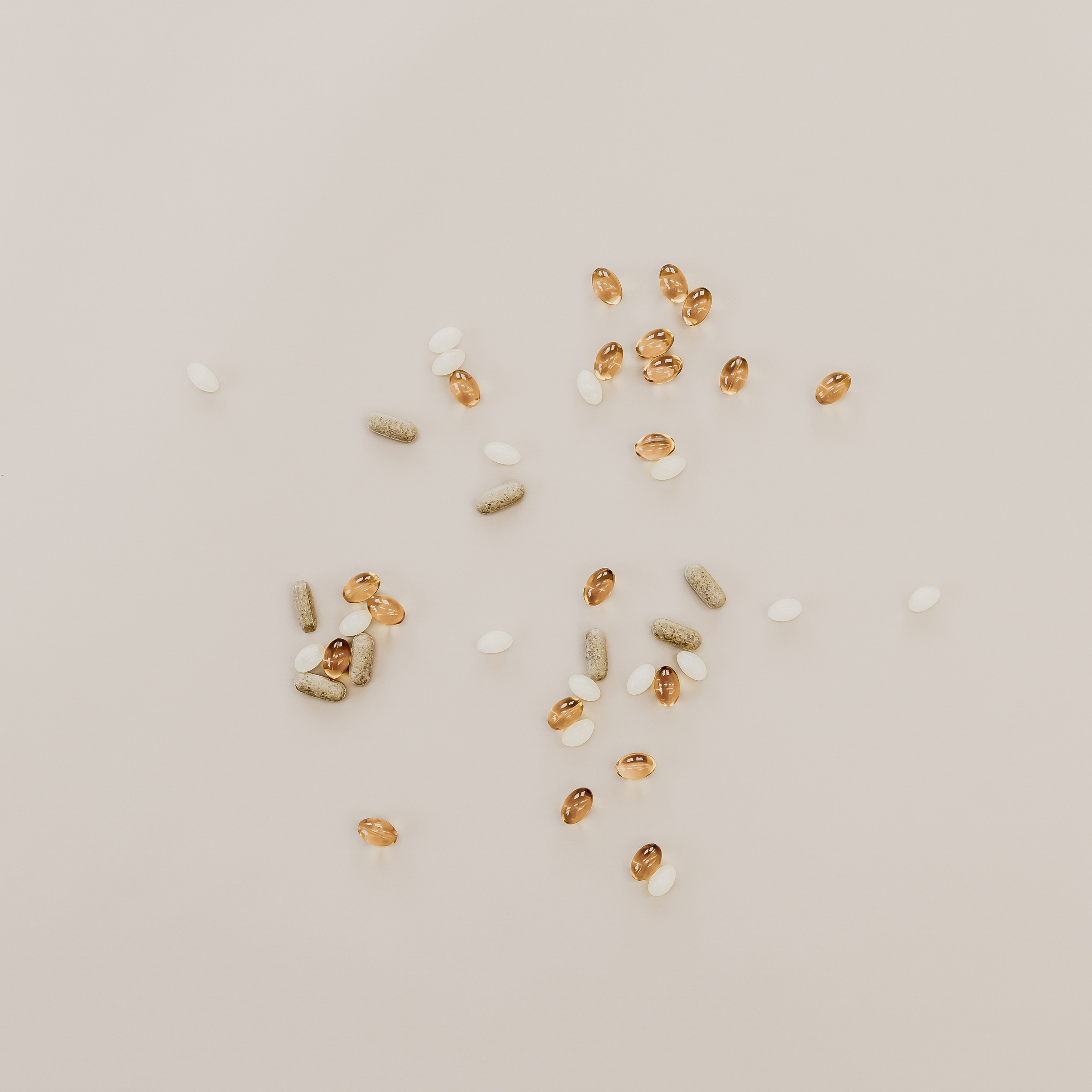Registered dietitian, functional nutritionist, & your new fertility BFF. I'm passionate about helping women thrive during preconception, pregnancy, and postpartum.
Nutrition
PCOS
Fertility
View All
Explore the blog
Hi, I'm Anabelle
Non-toxic Living
Work with our team
Everything you need to know before coming off hormonal birth control
Like many of my clients and readers, I was given hormonal birth control with absolutely no discussion on the side effects of the pill. I was handed the pill and never really thought twice about it. I just knew it gave me a “regular” period and would help me protect against an unwanted pregnancy. It was only in my THIRTIES that I discovered how the pill depletes certain nutrients, affects mood, weight, and so much more. If you’re curious about which nutrients are depleted on hormonal birth control, then keep reading on.

8 Nutrients depleted on hormonal birth control and how they impact fertility:
Zinc
Found in foods such as eggs, seafood, meat, nuts, seeds, beans and whole grains. Zinc plays an important role in both egg and sperm health.
Magnesium
Found in foods such as avocado, banana, seafood, green leafy vegetables, nuts and seeds. Magnesium plays an important role in sleep, bone health and our muscles ability to relax.
Vitamin C
Found in foods such as oranges, broccoli, kiwi fruit and guava. Vitamin C is a valuable antioxidant that keeps our eggs and sperm protected from oxidative stress caused by free radicals.
Folate
Found in green leafy vegetables and fortified breads and cereals. Folate is essential when trying to conceive and helps to prevent the formation of neural tube defects in early pregnancy.
Selenium
Found in foods such as Brazil nuts, meats and seafood. Selenium plays a valuable role in our thyroid function and helps to prevent sperm from mutating or becoming damaged.
Vitamin B2
Found in eggs, meats and dairy products. Vitamin B2 is a common nutrient depleted when on the pill and is often the culprit behind those pesky headaches!
Vitamin B6
Found in foods like breads and cereals. Vitamin B6 is commonly depleted in those taking the pill. It plays an important role in fertility and the luteal phase of the menstrual cycle.
Vitamin B12
Found in foods such as fish, beef, and fortified cereals. B12 is essential for healthy cell formation, a must when trying to conceive.
Ideally you would want to ensure that these levels are checked and corrected where necessary before you start thinking about conceiving to ensure a healthy baby and pregnancy. You can start a prenatal, a few months before coming off the pill to help with the transition of coming off.
Wondering what else you can do to support your body when coming off the pill?
Let’s face it, coming off the pill can be a scary thought and can lead to some not so nice side-effects including:
- Post-pill amenorrhea
- Painful, heavy periods
- Irregular cycles that are hard to predict
- Acne
- Headaches or migraines
- Changes in weight (loss or gain)
- Changes to mood
- Digestive upset (IBS like symptoms)
- Breast tenderness
Supporting your body through nutrition can be a great way to make the transition easier.
Try these 9 tips to support your body when coming off the pill

- Aim to have at least 1 bowel movement each day to facilitate the removal of excess estrogen in the body.
- Eat plenty of cruciferous vegetables to lower estrogen levels – try eating 1 cup of bok or pak choy, broccoli, cabbage, cauliflower, arugula and Brussel sprouts each day!
- Eat regularly – aim to eat every 2-3 hours to support blood sugar and hormone balance. Putting your body under too much stress can increase the stress hormone cortisol.
- Eat enough fibre to encourage regular bowel movements – aim to eat between 3-6 cups of colourful, leafy vegetables each day.
- Eat lean protein to support your detox pathways – try turkey, chicken, pork, beef, and seafood.
- Include plenty of healthy fats to support hormone creation – try extra-virgin olive oil, avocado, nuts and seeds.
- Stay hydrated by drinking plenty of water – aim for at least 8 cups per day.
- Try to avoid highly processed foods – think sugary foods, fast foods and refined oils.
- Avoid alcohol if you can! Alcohol is also removed via our liver, so give it a break if you can.
References:
- How Birth Control Pills Affect Your Nutritional Needs – Scientific American
- Oral contraceptives and changes in nutritional requirements – PubMed (nih.gov)
Looking for more support with your fertility? Book your free 30 minute 1:1 strategy call with me to learn how I can support you using functional nutrition, specialty lab testing, and targeted supplements. Can’t wait to speak to you!

Leave a Reply Cancel reply
The Preconception Playbook
This free playbook provides specific actionable tips to get started on your fertility journey, as well as what to avoid while you're trying to conceive.
Get the free playbook
Functional nutrition for women & couples trying to conceive
Get the Preconception Playbook
Actionable tips to get started on your fertility journey, as well as what to avoid while you're trying to conceive.

Be the first to comment